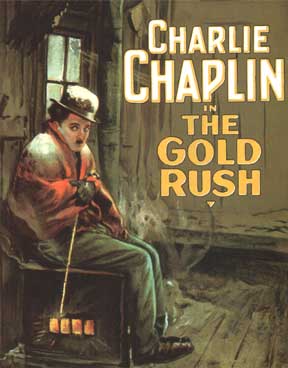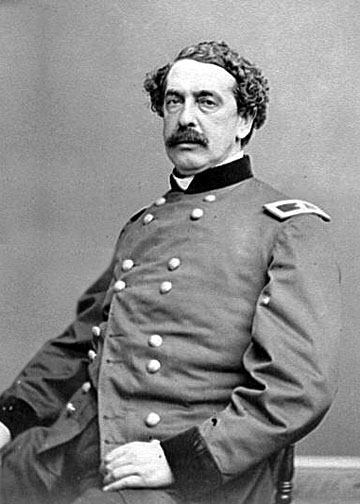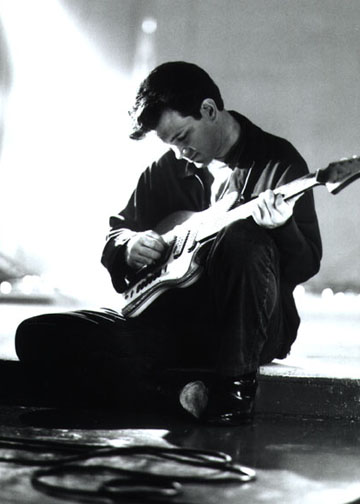|
|
America is a large, friendly dog in a very small room. Every time it wags its tail, it knocks over a chair.
- Arnold Toynbee (1889-1975)
Today is Thursday - June 26th, 2025
On This Day In History:

1925 - "The Gold Rush"
On this day in 1925, Charlie Chaplin's comedy "The Gold Rush" premiered in Hollywood.
After the box-office failure of his first dramatic film, "A Woman of Paris," Charlie Chaplin brooded over his ensuing comedy. "The next film must be an epic!" he recalled in his autobiography. "The greatest!" He found inspiration, paradoxically, in stories of the backbreaking Alaskan gold rush and the cannibalistic Donner Party. These tales of tragedy and endurance provided Chaplin with a rich vein of comic possibilities.
The Little Tramp finds himself in the Yukon, along with a swarm of prospectors heading over Chilkoot Pass (an amazing sight restaged by Chaplin in his opening scenes, filmed in the snowy Sierra Nevadas). When the Tramp is trapped in a mountain cabin with two other fortune hunters, Chaplin stages a veritable ballet of starvation, culminating in the cooking of a leathery boot.
Back in town, the Tramp is smitten by a dance-hall girl (Georgia Hale), but it seems impossible that she could ever notice him. The Gold Rush is one of Chaplin's simplest, loveliest features; and despite its high comedy, it never strays far from Chaplin's keen grasp of loneliness.
Well before he began shooting The Gold Rush, Chaplin was the most famous man in the world. He'd been in show business for more than twenty years, since the English music hall helped the boy escape brutal poverty. In 1914, after two tours of the United States as a $75-a-week player in Fred Karno's vaudeville troupe, Chaplin joined Mack Sennett's Keystone studio, doubling his wages and exposing him to what "the pictures" had to offer during the knockabout slapstick days of the Keystone Kops and Fatty Arbuckle. He developed the Tramp during his first year under Sennett, and within four years the character had appeared in dozens of one- and two-reel short comedies directed by Chaplin. The best of these early shorts, such as Easy Street, The Immigrant, and others made for the Essanay, Mutual, and First National studios, remain some of the most age-proof pleasures ever committed to celluloid (not to mention little shiny discs).
In 1918, at age 29, Chaplin was Hollywood's first million-dollars-a-year celebrity. His personal and professional cache allowed him to build his own studio with full creative control of his work. (Chaplin Studios, at La Brea Avenue and Sunset Blvd., is now Jim Henson Studios. Atop its entrance stands Kermit the Frog sporting the Tramp's bowler, outfit, and cane.)
The Gold Rush was a huge success in the US and worldwide. It is the 5th highest grossing silent film in cinema history, taking in more than $4,250,000 at the box office in 1925. It is in fact the highest grossing silent comedy film.
Chaplin proclaimed at the time of its release that this was the film for which he wanted to be remembered.
|
Celebrating Birthdays Today:
|
What Happened on Your Special Day?
I became a fan of "today in history" information when I was very young. My father had a calendar that he had put together of "reasons to celebrate". If anybody asked "what are we celebrating?" my father could check his book and come up with a reason to celebrate for any day of the year. Charlie Chaplin's birthday, Buster Keaton's birthday, the anniversary of the opening of the Golden Gate Bridge, for every day of the year, my father's calendar had some interesting historical event that had occurred.
With this page I have tried to continue the tradition. Generally, I prefer to include birthdays and anniversaries of positive, uplifting, life affirming people and events that have had particular significance in my life. It's here because it was important to me.
I am trying to continually update with links from stories to other relevant sites. Check back regularly for a story on something interesting that happened on this day in history.
There are many, many, sites out there that have a lot of "this day in history" information. Many are not so great, full of inaccurate information and "negative vibes". However, there are a few that are really fabulous. Here are links to a few of my favorites. These sites feature "Today in History" stories for today, and some include archives that will enable you to look up information for any other date in history that is special to you:
This Day in History
The History Channel tells you what happened in Automotive, Civil War, Cold War, Crime, Entertainment, General Interest, Literary, Old West, Vietnam War, Wall Street, and World War II history for today or any day.
Life Magazine Covers
Life offers a look at covers from this day in history.
New York Times: On This Day
Lists events which occurred on each month and day of the year throughout history. Links to New York Times articles on the events when available.
Today in History
Stories and pictures from the American Memory historical collections of the U.S. Library of Congress.
The Internet Movie Database
The Internet Movie Database claims itself to be the biggest, best, most award-winning movie site on the planet. I'm not sure if it really is, but it is huge and has TONS of info on even the most obscure films, movies stars, directors, producers, etc. If it is motion picture related, you can probably find out something about it at this site.
|
|






